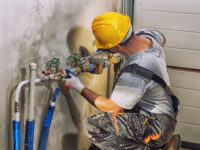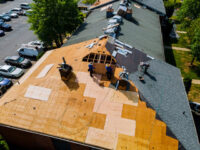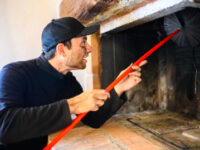Law Requires Plumbers to Inspect Gas Piping Every Four Years
Enacted after deadly building explosions, Local Law 152 requires inspections of your building’s gas piping systems every four years. These inspections must be conducted by Local Law 152 Plumbers or an individual working under the direct supervision of one.
LL152 inspectors must also submit the necessary paperwork to DOB and work with the property owner on any repairs needed. This is a complicated process that can be expensive.

In order to ensure that City building occupants and their guests are safe from gas leaks, local law requires the city’s buildings with gas piping to undergo regular inspections on a set schedule. These inspections are conducted by certified and licensed professionals who check the gas piping to make sure it’s working up to safety standards. This is especially important in the wake of numerous fires and explosions caused by faulty or improperly connected gas piping, which can be deadly.
Local Law 152, which was introduced by the Department of Buildings to local legislature in 2016, made it mandatory for every gas piping system in any building to be inspected and up to code at least once every four years. This includes commercial properties, apartment buildings, and single-family homes.
The law states that any building that has a gas piping system must be inspected by a Licensed Master Plumber (LMP) or by a qualified individual under the direct and continuing supervision of an LMP at least once every four years. However, there are some exceptions to this rule. Buildings that are classified as occupancy group R-3 (2 families or less) and that have a natural gas service provided by Consolidated Edison or National Grid are exempt from this requirement.
During a Local Law 152 inspection, the plumbing professional will take note of any hazardous conditions that may be found, including leaks, corrosion, illegal connections, or other violations. They will also take a visual walkthrough of the exposed building gas piping from point-of-entry to, but not including, tenant spaces. They will then report on their findings to the DOB and work with the building owner to correct any issues found.
It is crucial that the plumbing professional hired for a Local Law 152 gas inspection be fully licensed and insured. This will ensure that in the event of an accident, the property owner is protected from any resulting damages or losses. The best way to find out if a plumber is licensed and insured is by looking at their credentials. Licensed and insured plumbing professionals will have a current license number, certification number, and a bond in place.
In addition to being licensed and insured, the plumbing professionals at Local Law 152 Plumbers are experienced in conducting these inspections and are up to date on all of the latest requirements for gas piping inspections. We can help you schedule your inspection, perform a thorough and accurate assessment of your piping, and assist with the necessary filings with the DOB. For more information or to schedule an appointment, contact us today! We look forward to serving you.
If you are a property owner or manager in City, chances are you have to comply with Local Law 152. This is a new city requirement that states that certain buildings must be inspected every four years on a set schedule to ensure that their gas piping is safe. This prevents leaks and fires that can be dangerous for the occupants of your building, neighbors, maintenance staff and city first responders.
The requirements under Local Law 152 are very specific about which buildings must be inspected and what must be done in order to comply. The inspections must be performed by a licensed master plumber (LMP). They are required to inspect all exposed piping within the building, including boiler rooms, amenity and common spaces, rooftop mechanical areas and any publicly accessible areas. They must also check the portable combustible gas detectors in all residential units and common areas of mixed-use properties.
LMPs must also submit an inspection report within 30 days of the inspection. They must complete a Gas Piping System Periodic Inspection Certification (GPS2) form and submit it to the Department of Buildings. If the inspection results in conditions that require correction or remediation, the LMP must work with the property owner to address these issues. They must also file a GPS2 extension, if necessary.
As with any compliance issue, it is important to stay on top of your deadlines. If you miss your deadline, you could face fines or other legal action. That’s why it’s always best to be proactive and keep up with your LL 152 inspection.
In order to determine if your building needs to be inspected and when, you can look up the inspection schedule online. It is organized by community district, so you can easily find your deadline. If you are having trouble finding your inspection date, you can contact us for help.
Our team of experienced plumbers is here to help you make sure that your building is compliant with Local Law 152. We will perform the required inspection and help you submit your GPS2 form to the city. We can even assist with any repairs that are required.
We’ve been working in the industry for many years and have helped thousands of customers with their plumbing issues. We know how to deal with any problem quickly and efficiently, so you can get back to your regular business operations. We understand how to keep your costs down and will work with you to meet your budget.
We will help you comply with all of the City’s regulations, so that you can avoid costly penalties. You can rest assured that our skilled technicians will do everything possible to provide the best service and the highest quality workmanship. Our customers come to us because they trust in our expertise and professionalism.
We’re Here to Help
In light of the recent natural disasters and tragic events that have taken place in it is important for building owners to make sure their property’s gas piping systems are up to par. This is why Local Law 152 inspections are so crucial to the safety of every home and business in . Local Law 152 is a compliance regulation that requires periodic inspections of all building’s gas piping systems by an Licensed Master Plumber.
The law was passed back in 2016 as part of a package of laws and regulations that aim to keep residents safe from gas line explosions, fires, and leaks. The regulations require that most buildings must undergo these inspections every four years, with the specific dates based on the Community District in which each building is located.
These inspections are designed to prevent potential disasters by catching and fixing any issues before they can cause a problem. The inspection process consists of a visual check of the building’s exposed gas piping system, from the point of entry up to tenant spaces, looking for problems like leaks, corrosion, illegal connections, and more. Upon completion, the inspector must then sign and seal the paperwork and file the certification. If the inspection is due but has not yet been done, you will have a limited time to get it done before the DOB starts to issue fines.
While the DOB used to be more lenient with deadline windows, they are now enforcing these rules strictly. As such, many building owners are in danger of having their certificates of compliance fail if they don’t have an inspector complete their GPS-2 submission form and submit it by the deadline.
This is why we encourage you to contact us right away if you need an inspection. Our team of experienced and certified LL 152 inspectors will be happy to provide you with an accurate estimate and schedule your appointment ASAP so that you can avoid any costly penalties.
The DOB also allows for a 180-day extension to be filed, which is great news for those who need more time than just the two months before their LL 152 inspection is due. This can be done by submitting a request to the DOB online, and our LL 152 inspection service will walk you through this step for free.
The law does exclude some buildings from these requirements, primarily 1 and 2-Family homes, Group Home Community facilities in 1- and 2-Family buildings with no more than two dwelling units, Convents or Monasteries with fewer than 20 occupants, and 1 and 2-Family tenement buildings that are designated as occupancy R-3. If you are not sure whether your building is included or not, a Licensed Master Plumber will be happy to review it for you for free, so that you can make the best decision about what your next steps should be.






